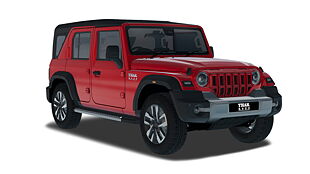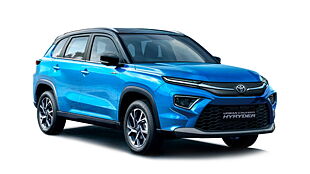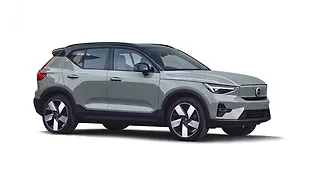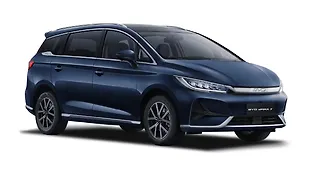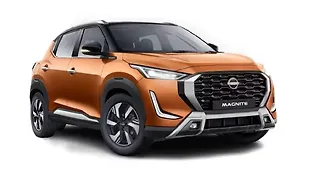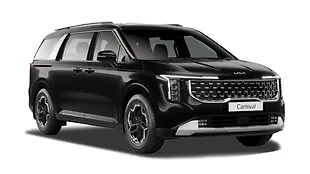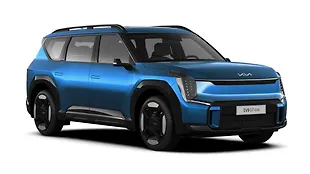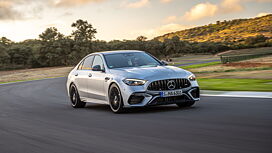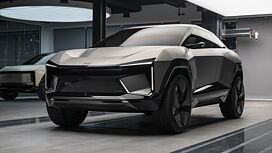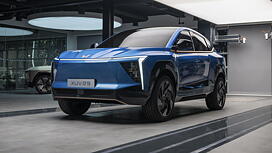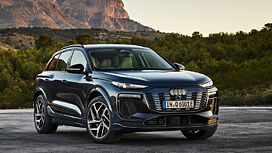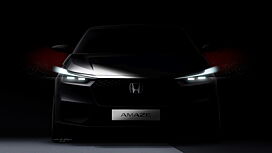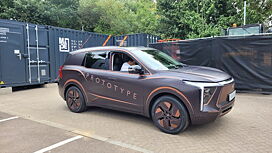Introduction

Over the last few years, we have witnessed a significant rise in demand for rugged and masculine-styled SUVs in India. First introduced in early 2019, the Tata Harrier has been on the wish list of buyers who seek a big and brawny SUV. Then, at the 2020 Auto Expo, Tata Motors introduced the Harrier automatic in the country.
The one you see in the images is the automatic XZA Plus variant in Calypso Red colour. Now, this particular model is not exactly new in the Indian market, with the latest ones being offered in the new top-spec Kaziranga and Dark editions. That said, apart from a few fresh feature additions nothing much has changed. This particular model was loaned to me and here is my experience of living with it.
How practical is it?

The Harrier is a large car by all means, with a length of 4,594mm, a width of 1,894mm, and a height of 1,706mm. The vehicle has a wheelbase of 2,741mm. While these figures are great when it comes to ample cabin space for the occupants, driving it around in a space-starved city like Mumbai can be quite a task. That said, the ample ground clearance of 205mm ensures that the SUV is capable of effortlessly clearing the largest of the speed breakers and potholes that are no less than a crater.

Open the door and you are greeted with a black and brown interior with wooden trim inserts on the dashboard, giving it a plush feel. Then, the dashboard is highlighted by a floating 8.8-inch touchscreen infotainment system which is quite average as compared to the touchscreen infotainment units offered in Hyundai Creta and Kia Seltos. In fact, the system in Harrier is quite slow and lags as compared to its rivals. However, the slightly matte finish on the touchscreen infotainment offers good visibility under bright sunlight. Further, the leather-wrapped three-spoke steering wheel with large control buttons is easy to use. And the instrument cluster features a seven-inch colour TFT display which gives out all the important details with clarity.

Cabin space has never been a problem with Tata cars and the Harrier is no different. The SUV is spacious and comfortably accommodates five occupants, while offering ample legroom and headroom in both rows. As for stowage, the Harrier offers many functional storage spaces around the vehicle, including cup-holders in the front as well as the rear centre armrest, deep door pads, and a smartly designed glove box that does not compromise on the legroom for the front passenger.

On the downside, the USB port at the rear is oddly positioned closer to the floor and it takes some practice as well as a flat belly to access it comfortably. In the front row too, placing or picking up your cell phone from the storage pad in the centre console is not an easy affair, the space is tight and requires some effort to access your device.

What’s on the feature list?

The Harrier is loaded with all the modern convenience features. The vehicle offers a six-way power-adjustable driver seat and lumbar support which ensures that you find a correct and comfortable driving posture. The other notable features here include an auto-dimming IRVM, a panoramic sunroof, fully automatic temperature control with HVAC, cruise controls, rain-sensing wipers, and auto headlamps. The rear parking camera, though, is pretty average and is just enough to get things going.

Since this is an older model, it misses out on the iRA connected car technology and ventilated front seats. The current lot now offers these features in the top-spec variants. Not to mention, the nine JBL speakers deliver an immersive experience with good music quality. The xenon HID projector headlamps and front fog lamps with a cornering function are a boon in the dark and perform satisfactorily. Furthermore, the safety feature list includes six airbags, hill descent control, off-road ABS, and ISOFIX anchor points.

How does it perform on the daily commute?

The Harrier has a good road presence and is built to handle Indian roads with ease. Despite the heavy bodyweight, the Harrier is an impressive performer as it churns out enough power to safely overtake another vehicle on the road or reach three-digit speeds. Under the hood, the SUV is powered by a 2.0-litre turbocharged diesel engine which generates 168bhp at 3,750rpm and 350Nm of torque between 1,750 - 2,500rpm. This particular model gets a six-speed torque converter automatic. The vehicle also gets off-road focussed modes such as Normal, Wet, and Rough-road despite the absence of AWD.

Talking about the noise levels, the diesel clatter can be heard in the cabin but it isn’t too annoying. Then, sometime it tends to hold a gear a little longer than expected, but it is not really bothersome. Further, the steering wheel feels unnaturally heavy, especially at lower speeds, and a lighter set-up would have made it more enjoyable. The Harrier is not the easiest to drive within the city limits due to its beefed-up proportions, smaller rear windscreen, and limited visibility from the driver’s seat. Additionally, parking the Harrier in tight spots also requires some practice. That said, the rear seats are fairly comfortable at normal speeds, however, when you make some sudden lane changes or hit a pothole at higher speeds the rear seat passengers are likely to experience nausea.

The ingress and egress are easy for both the young as well the aged. During our recent test, this engine with an automatic setup returned a fairly good fuel efficiency figure of up to 11.50kmpl within the city and up to 19kmpl on the highway. Depending on the driving conditions, the SUV returns a combined fuel efficiency of up to 13.24kmpl.

How is it for the weekend?

The Harrier is a good choice for a long trip with friends or family. The 425 litres of boot space comfortably accommodates two large suitcases and a few duffle bags. The vehicle gets a 60:40 split for the rear seat for more luggage flexibility and seating option. Fold down the rear seats completely and you get 810 litres of boot space that can now accommodate a couple of more large suitcases with ease.

The rear seat also gets an armrest in the centre, therefore four occupants would be ideal for long trips. What else? The large panoramic roof and fairly wide windows give the cabin an airy feel, which further enhances the overall drive experience. The multi-drive modes allow you to plan your trips towards uncharted horizons.

What’s the deal with the warranty?

Tata Harrier gets a standard warranty of two years from the date of sale of the car or mileage of one lakh kilometres, whichever is earlier. Customers who plan to extend the warranty by a year or two can opt for the Tata Motors Extended Warranty Program. The extended warranty for the Harrier starts as low as Rs 12,500 and goes up to Rs 36,000 depending on the variant and the time of purchase.
Conclusion

The Harrier and the Safari are two popular products from Tata Motors that are yet to get a safety rating from Global NCAP. That said, it does not make the Harrier low on safety. Overall, this SUV gets a good fit and finish, while also being offered the latest safety equipment. Furthermore, it gets most of the modern features, which are generally offered in the premium segment, at a fairly competitive price.

To answer the question if you should consider buying it? The answer would be, yes. Despite some things that I didn’t like, the Harrier offers a good balance of style, space, and performance. Moreover, one can also opt for the new special top-spec versions being offered in the form of the Kaziranga and the Dark editions.
Photo Courtesy - Kaustubh Gandhi

![टाटा हैरियर [2019-2023] इमेज टाटा हैरियर [2019-2023] इमेज](https://imgd.aeplcdn.com/272x153/n/cw/ec/32958/tata-harrier-right-front-three-quarter58.jpeg?q=80)

